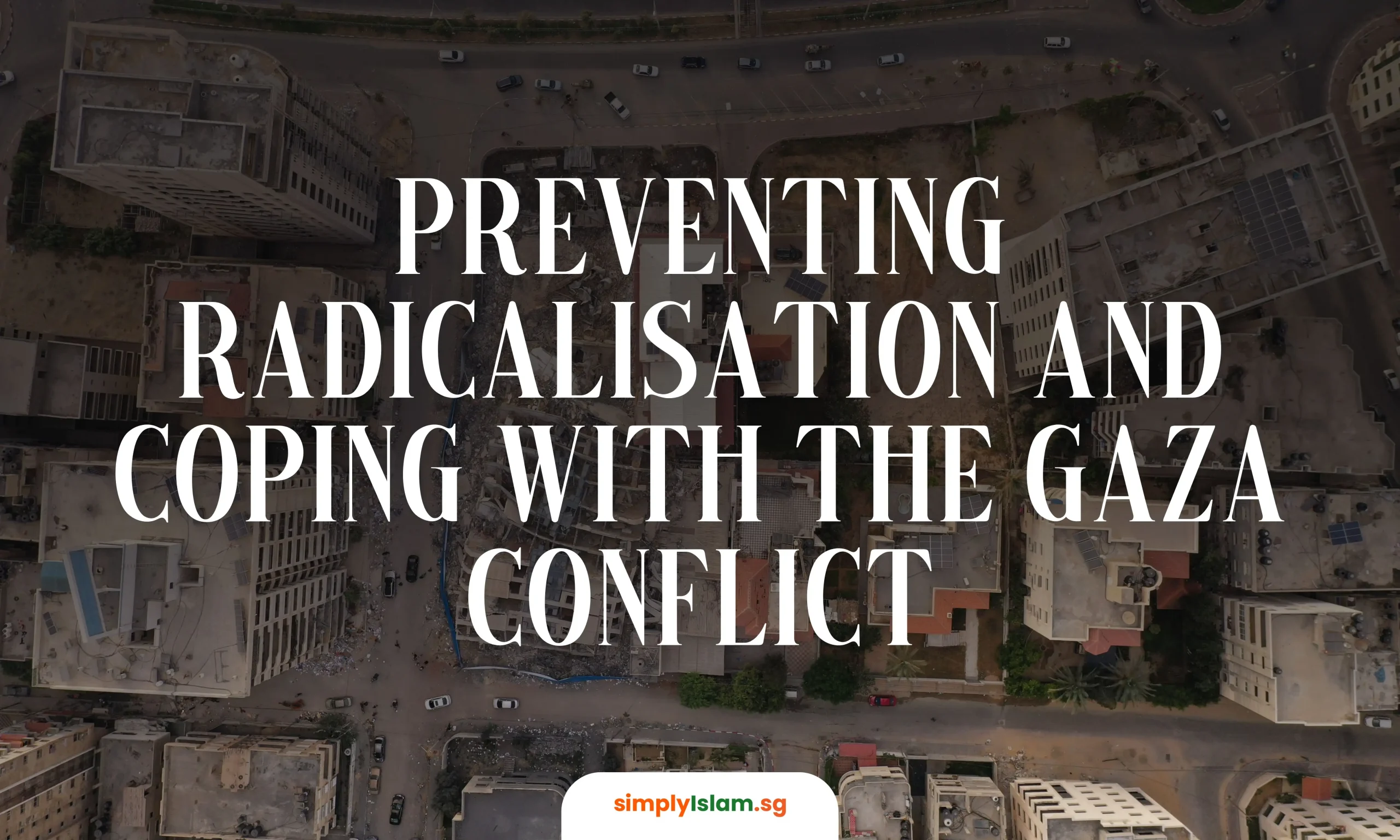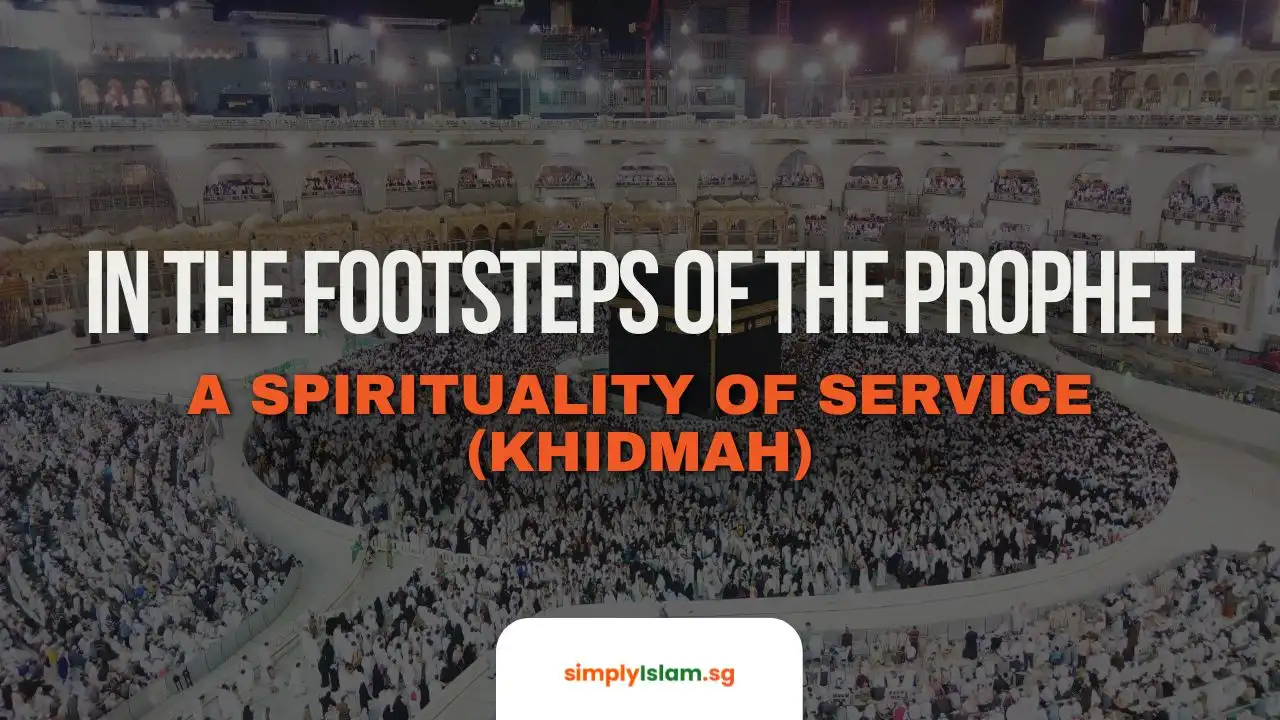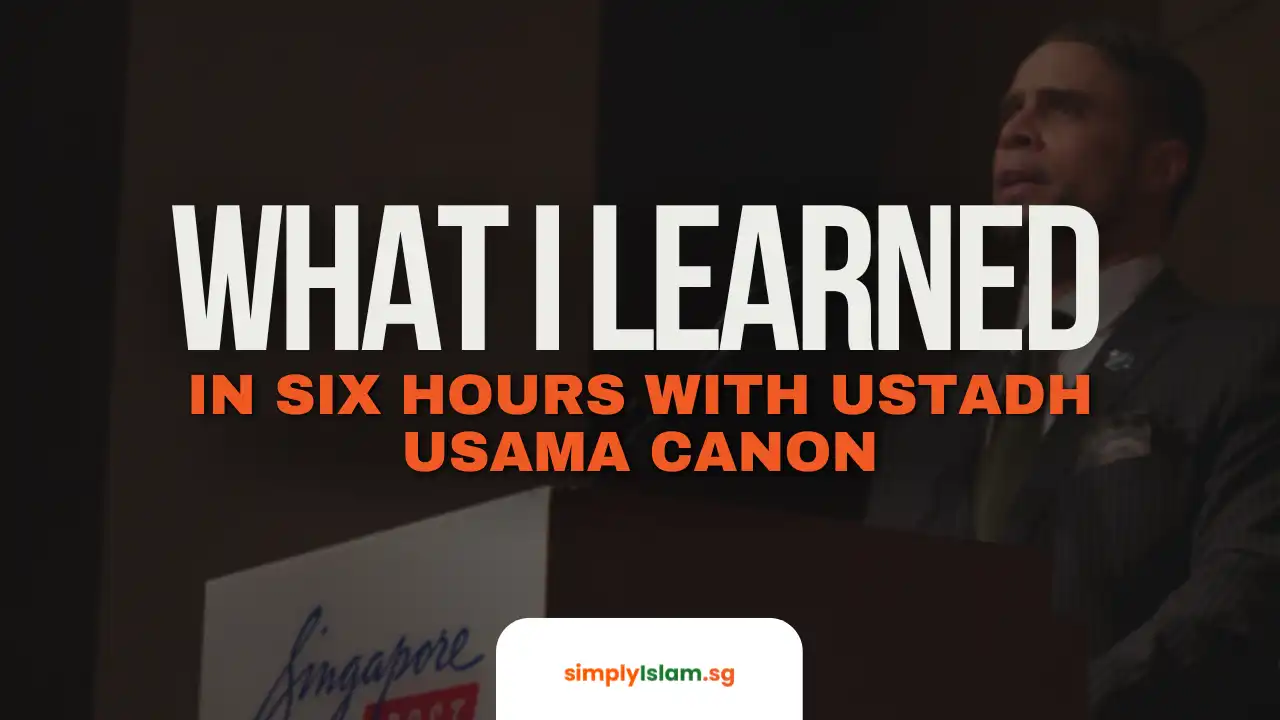
Guide to Ramadan Preparation in Sha’ban 2025: Tips and Checklist
He ﷺ Chose Mercy: Prophetic Responses to Hate, Hurt, and Hostility
Reflections for Singaporean Muslims
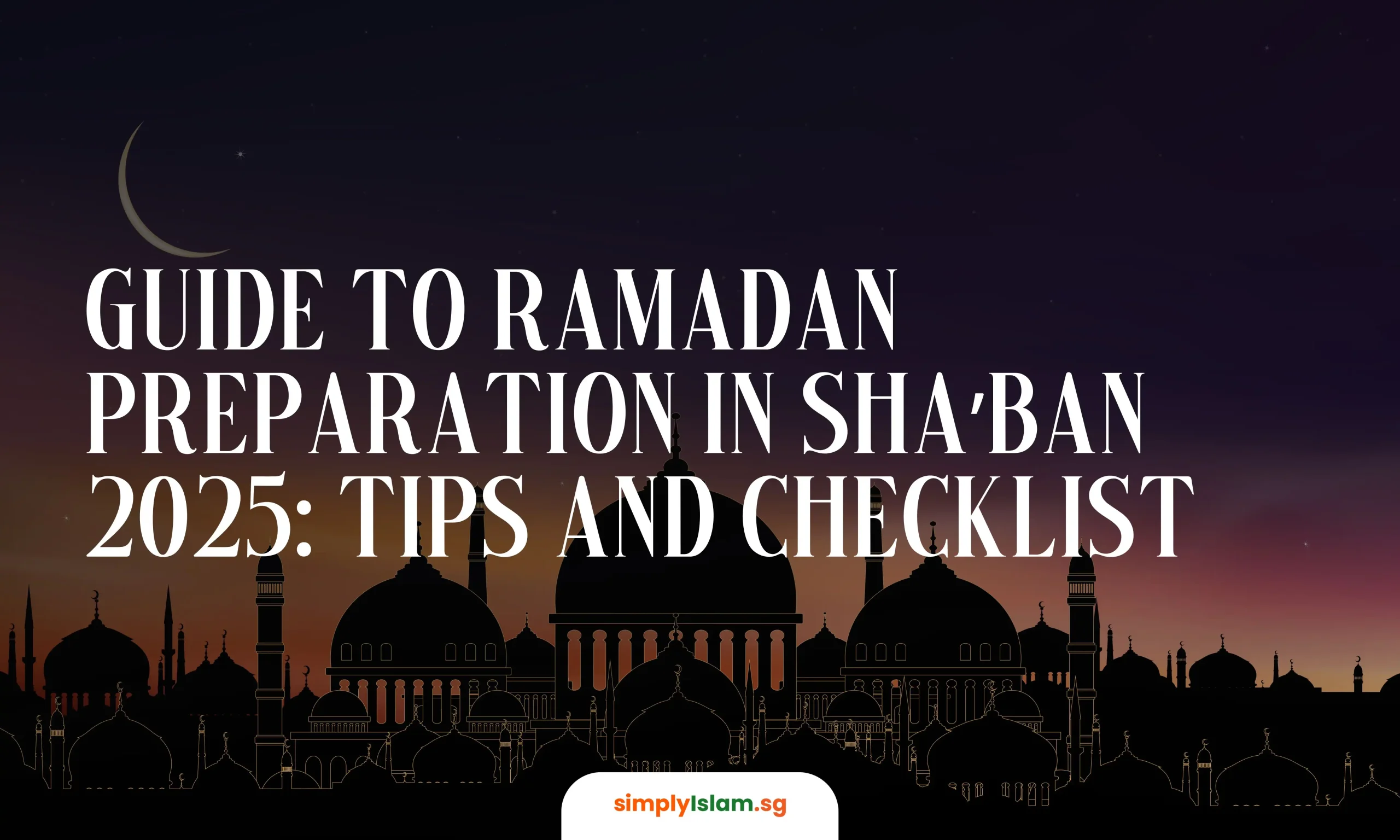
Have you started your Ramadan preparation for 2025? It’s more than just a physical task—it requires spiritual and emotional readiness too. Ramadan prep goes beyond the practical aspects and extends to cultivating a mindset that honors this sacred time.
What better way to kickstart your Ramadan preparation than during the holy month of Sha’ban, right before the blessed month that Muslims eagerly anticipate each year!
In this guide, we’ll dive into essential Ramadan preparation tips, exploring what Ramadan truly is, why it holds immense significance for Muslims, and how to get ready for Ramadan in the best possible way, Insha’Allah.
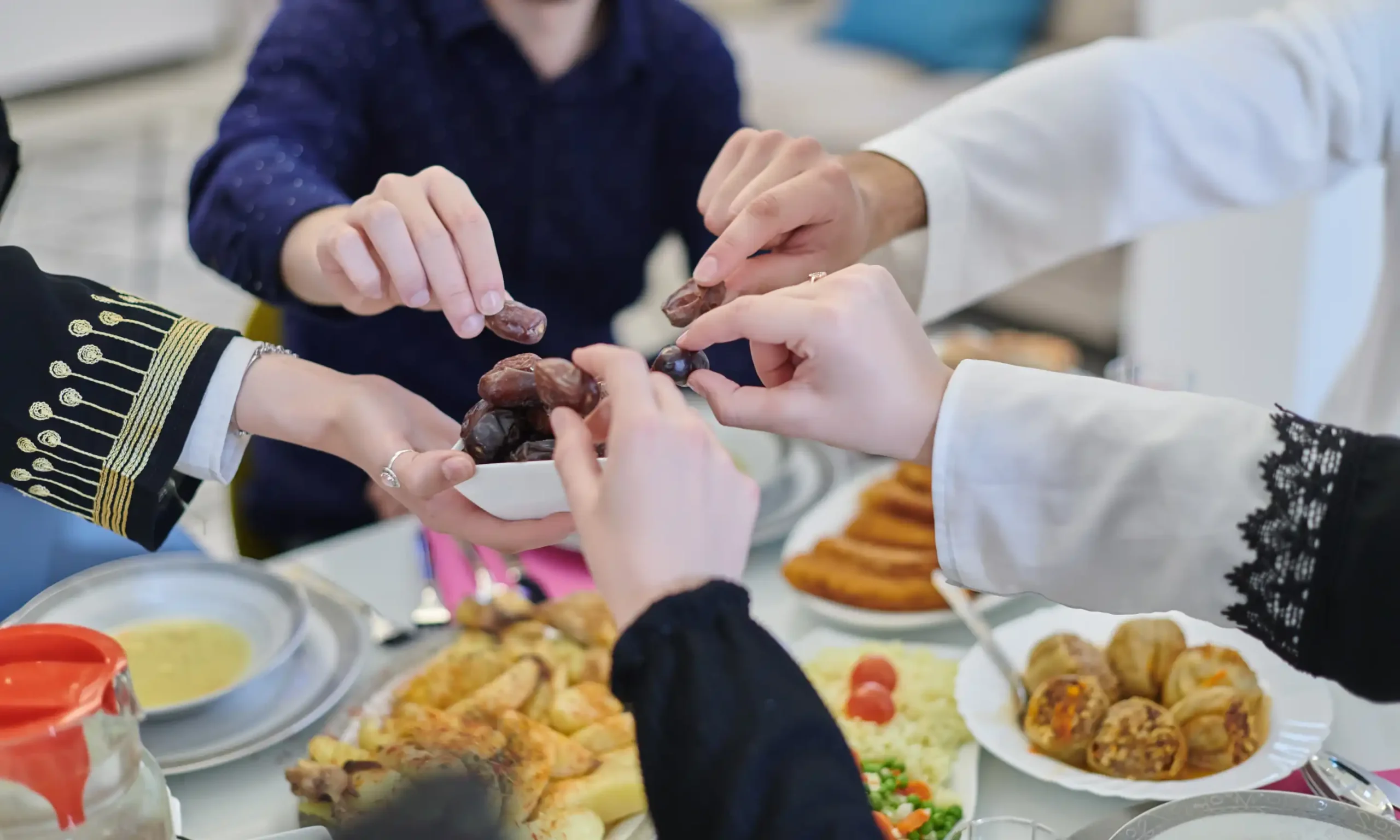
What is Ramadan and it’s significance?
To prepare for Ramadan, you should understand the essence of what Ramadan truly is, and its significance to Muslims worldwide.
Ramadan is the ninth month of the Islamic lunar calendar, regarded as one of the holiest months. It is a time of fasting, prayer, reflection, and community, observed as one of the Five Pillars of Islam, which form the foundation of a Muslim’s faith and practice.
Narrated Abu Huraira (radiallahu anhu):
Allah’s Messenger (ﷺ) said, “When Ramadan begins, the gates of Paradise are opened.” [Sahih Al-Bukhari]
It was narrated from Abu Hurairah (radiallahu anhu) that the Messenger of Allah (ﷺ) said:
‘When Ramadan begins, the gates of Paradise are opened, the gates of Hell are closed, and the devils are fettered.”
During Ramadan, Muslims fast from dawn until sunset, refraining from food, drink, and other physical needs. The fast begins with the pre-dawn meal, called suhoor, and is broken at sunset with the evening meal, called iftar.
This act of fasting is not merely about physical deprivation but serves as a spiritual discipline, fostering self-restraint, empathy for the less fortunate, and a closer connection to Allah Almighty.
The significance of Ramadan extends beyond fasting. It is the month in which the first verses of the Qur’an were revealed to the Prophet Muhammad (ﷺ). This divine revelation is commemorated through increased devotion, recitation of the Qur’an, and night prayers, known as Tarawih.
Ramadan is also a time for generosity and charity. Muslims are encouraged to give zakat (obligatory almsgiving) and perform acts of kindness, ensuring that the spirit of compassion and community flourishes.
If you would like to do your part this Ramadan, extend a helping hand to the vulnerable communities in Singapore through our Ramadan Charity Basket initiative.
The month concludes with Eid al-Fitr, a joyous celebration marked by takbir, congregational prayers, feasts, and bonding. Ramadan’s significance lies in its ability to renew faith, purify the soul, and strengthen the bonds of family and community. To explore further on the fundamentals of Ramadan, try out our beginner fasting course available in hybrid mode!

How is Ramadan determined?
Ramadan preparation also includes the moon sighting! Ramadan is determined based on the Islamic lunar calendar, which consists of 12 months and spans approximately 354 or 355 days.
Unlike the Gregorian solar calendar, the lunar calendar is based on the phases of the moon. As a result, the Islamic year is about 10 to 12 days shorter than the Gregorian year, causing Ramadan to shift earlier by that margin each year.
The Lunar Calendar and Moon Sighting
The start of Ramadan is marked by the sighting of the crescent moon (hilal), which signifies the beginning of a new lunar month. This sighting takes place on the 29th day of Sha’ban, the month preceding Ramadan. If the crescent moon is visible after sunset, Ramadan begins the next day. If not, the month of Sha’ban is completed with 30 days, and Ramadan starts the day after.
Abu Huraira (radiallahu anhu) reported Allah’s Messenger (ﷺ) as saying:
Observe fast on sighting it (the new moon) and break (fast) on sighting it (the new moon), but if the sky is cloudy for you, then complete the number (of thirty). [Sahih Muslim]
The Three Methods of Moon Sighting: Rukyah, Hisab, and the Combination Approach
-
Rukyah (Visual Moon Sighting)
Rukyah, derived from the Arabic word meaning “observation,” involves physically sighting the crescent moon with the naked eye or through telescopes. This method is deeply tied to the Sunnah of the Prophet Muhammad (ﷺ), who emphasized moon sighting to determine the Islamic months.
Procedure: On the 29th day of Sha’ban, observers scan the western horizon after sunset to spot the crescent moon. If the crescent is visible, Ramadan begins the next day. If not, Sha’ban is completed as a 30-day month.
-
Hisab (Astronomical Calculations)
Hisa* refers to the use of precise mathematical and astronomical calculations to predict the phases of the moon and determine the lunar calendar.
Procedure: Using advanced algorithms and astronomical data, experts calculate the position, visibility, and age of the moon. This method eliminates the need for physical observation.
-
Combination of Rukyah and Hisab
The combination approach integrates both rukyah and hisab, using astronomical data to guide and complement physical moon sightings.
Procedure: Astronomical calculations determine whether the crescent moon is theoretically visible in a particular location.
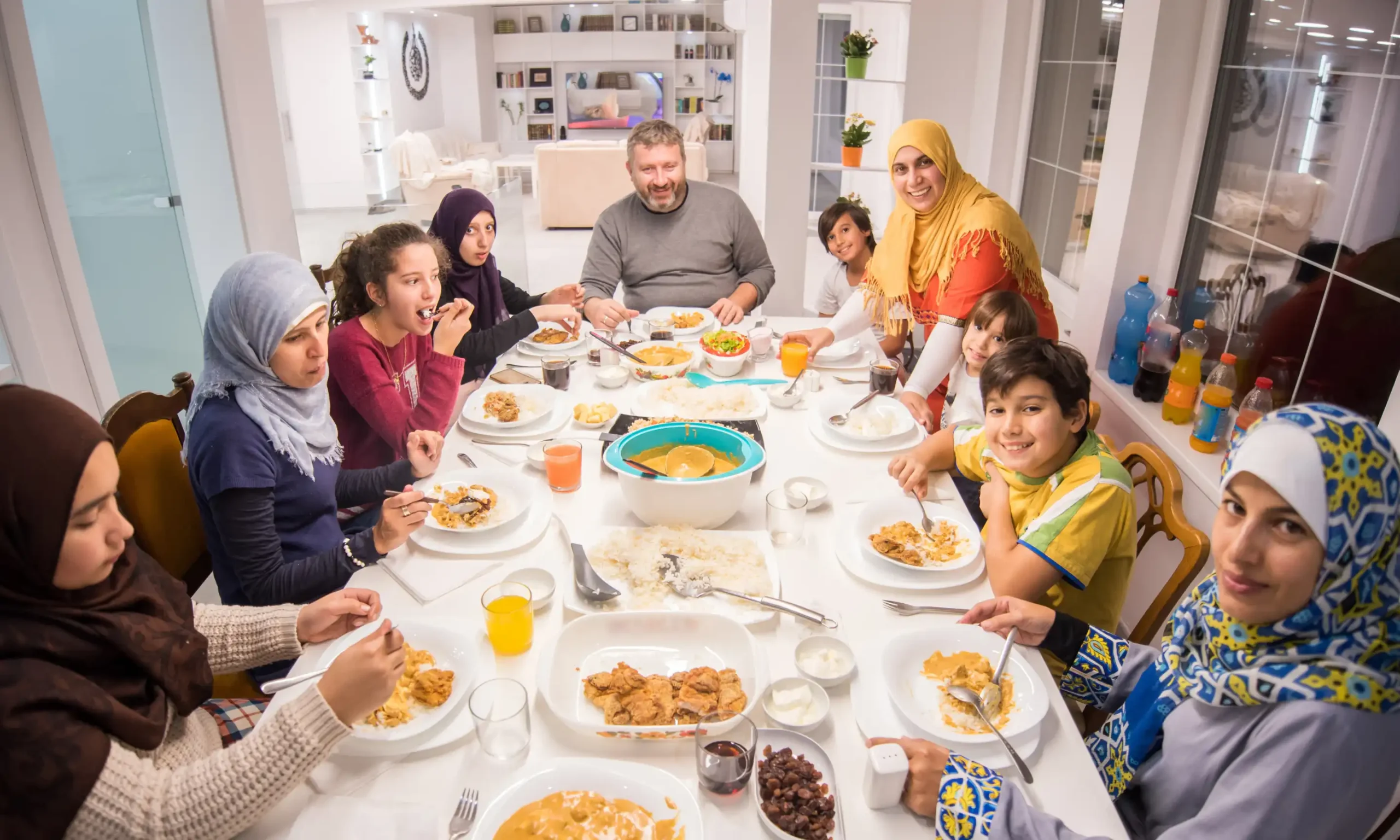
How to prepare for Ramadan?
Preparing for Ramadan is more than just about adjusting your routine; it’s a time to nurture your spiritual, emotional, and physical well-being to make the most of this blessed month. Here are some key ways on how to prepare for Ramadan effectively:
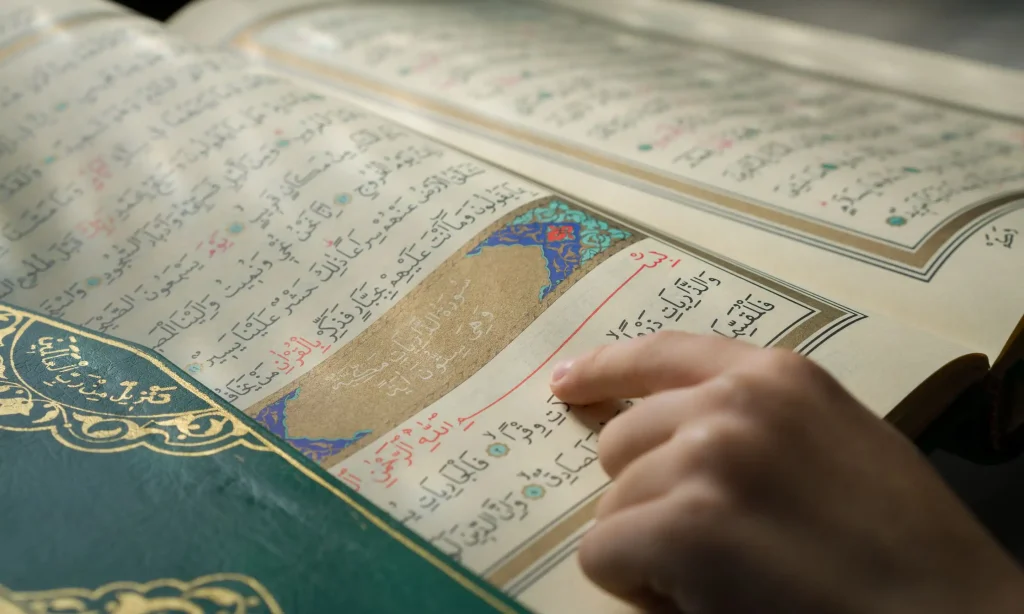
-
Increase Quran Engagement
To maximise the quality of preparation for Ramadan, there’s no better way to do it than strengthening one’s connection with the Qur’an. Set aside time each day to read, reflect, and understand the teachings of the Qur’an.
Another way in getting ready for Ramadan through Qur’anic recitation is by reciting the short surahs first, before leading up to the longer Surahs. This will help you feel a sense of accomplishment, increase your motivation and help you in your Ramadan journey, Insha’Allah.
You could aim to read a few pages daily or set a goal to complete it during the month. Engaging with the Qur’an in the lead-up to Ramadan will help build a deeper connection to Allah and provide spiritual guidance throughout the month.
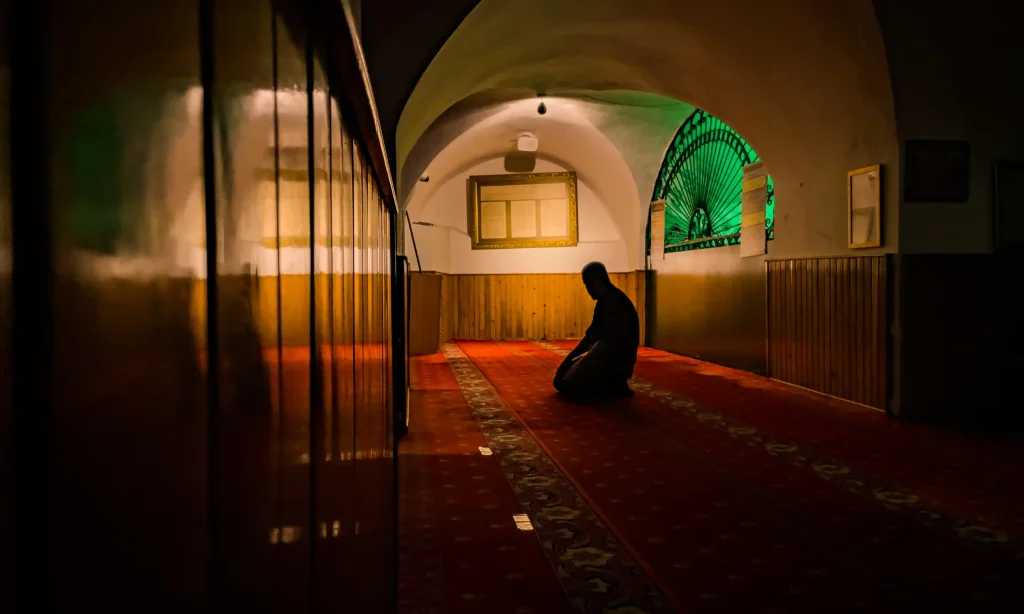
-
Improve Your Prayer Routine and Also Incorporate Tahajjud
One of the best ways in getting ready for Ramadan is by refining your prayer routine. Start by performing your five daily prayers consistently.
Remember, everyone’s journey is different, including yours. If you find it difficult to be punctual to perform your prayers, start by one salah first. If you find focusing in your salah difficult, start by focusing on the recitation of Al-Fatihah first. This journey is yours to take, so go at your own pace.
Abu Hurairah narrated that the Messenger of Allah (ﷺ) said:
“Take on only as much as you can do of good deeds, for the best of deeds is that which is done consistently, even if it is little.” [Sunan Ibn Majah]
Additionally, you may want to incorporate Tahajjud (the night prayer), especially in the last third of the night. This will help you adjust to the additional prayers and create a strong foundation for the upcoming Ramadan nights of worship.

-
Recite Istighfar and Seek Forgiveness to Purify the Heart
Purifying your heart and seeking Allah’s Forgiveness through regular recitation of Istighfar (seeking forgiveness) is crucial during Ramadan preparation.
Some of the Istighfar you can recite include:
لَآ إِلٰهَ إِلَّآ أَنْتَ سُبْحَانَكَ إِنِّيْ كُنْتُ مِنَ الظَّالِمِيْنَ
Lā ilāha illā Anta subḥānaka innī kuntu mina-ẓ-ẓālimīn.
“There is no god worthy of worship except You; You are free from all imperfection. Indeed, I have been of the wrongdoers.”
رَبِّ إِنِّي ظَلَمْتُ نَفْسِي فَاغْفِرْ لِي
Rabbi innī ẓalamtu nafsī fa-ghfirlī.
“My Lord, I have certainly wronged myself, so forgive me.”
رَبَّنَا ظَلَمْنَا أَنْفُسَنَا وَإِنْ لَّمْ تَغْفِرْ لَنَا وَتَرْحَمْنَا لَنَكُونَنَّ مِنَ الْخَاسِرِينَ
Rabbanā ẓalamnā anfusanā wa il-lam taghfir lanā wa tarḥamnā la-nakūnanna minal-khāsīrīn.
“Our Lord, we have wronged ourselves. If You do not forgive us and have mercy upon us, we will surely be amongst the losers.“
رَبَّنَا إِنَّنَا آمَنَّا فَاغْفِرْ لَنَا ذُنُوبَنَا وَقِنَا عَذَابَ النَّارِ
Rabbanā in-nanā āmannā fa-ghfir lanā dhunūbanā wa qinā ʿadhāba-n-nār.
“Our Lord, indeed we have believed, so forgive us our sins and protect us from the punishment of the Fire.”
رَبَّنَا اغْفِرْ لَنَا وَلِإِخْوَانِنَا الَّذِينَ سَبَقُونَا بِالْإِيمَانِ وَلَا تَجْعَلْ فِي قُلُوبِنَا غِلًّا لِلَّذِينَ آمَنُوا رَبَّنَا إِنَّكَ رَءُوفٌ رَحِيمٌ
Rabbana-ghfir lanā wa li-ikhwānina-l-ladhīna sabaqūnā bil-īmān, wa lā tajʿal fī qulūbinā ghilla-l-lil-ladhīna āmanū Rabbanā innaka Ra’ūfu-r-Raḥīm.
“Our Lord, forgive us and our brothers who preceded us in faith. Do not put in our hearts any hatred toward those who have believed. Our Lord, indeed You are the Most Compassionate, the Ever-Merciful.”
Reflect on your actions, seek repentance, and ask Allah Almighty for strength to overcome any shortcomings. This will help you cleanse your heart and prepare for Ramadan mentally and spiritually for the holy month.
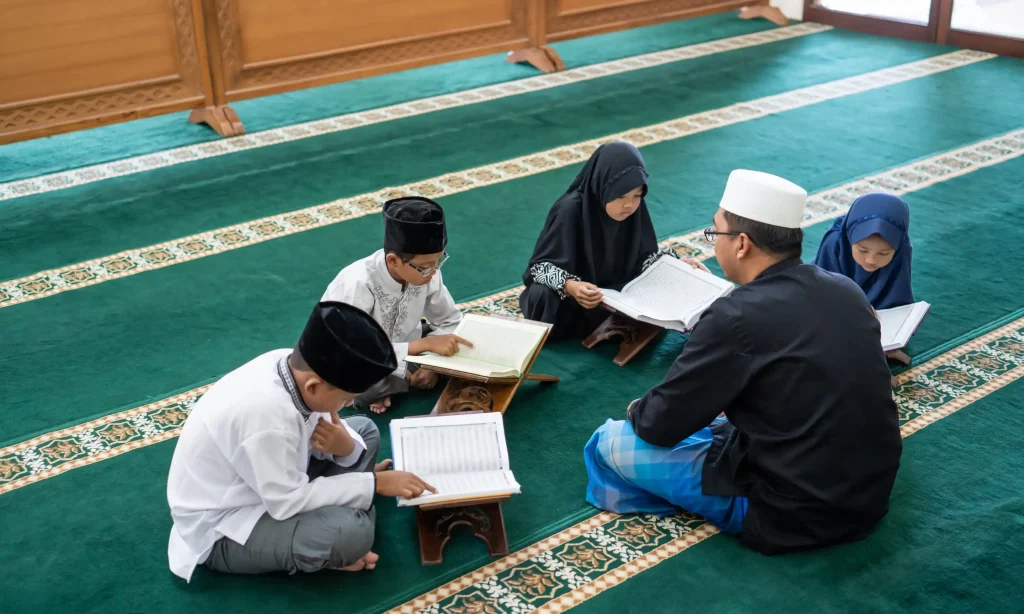
-
Engage with Islamic Teachings
To deepen your connection with the faith, engage with Islamic teachings online or attend physical Islamic courses, majlis and gatherings, as long as it benefits the mind, heart and soul.
These opportunities serve as gateways to acquiring beneficial knowledge, aligning with the profound guidance of the Prophet (ﷺ).
It was narrated from Jabir that:
the Messenger of Allah said: “Ask Allah for beneficial knowledge and seek refuge with Allah from knowledge that is of no benefit.” [Sunan Ibn Majah]
This timeless advice reminds us to pursue knowledge that transforms and uplifts, steering clear of pursuits that do not add value to our spiritual or worldly life.
By engaging in such meaningful learning experiences, you not only fortify your faith but also equip yourself with the wisdom to fully embrace and maximize the blessings of Ramadan and other significant moments in the Islamic calendar.
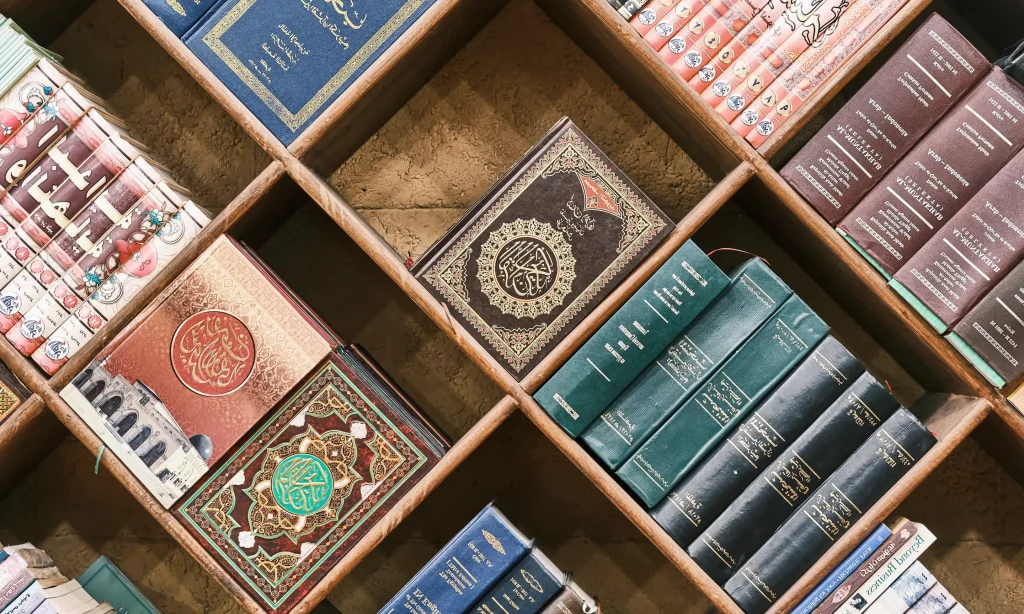
-
Study the Sunnah and Hadith Related to Ramadan
Immerse yourself in the life of Prophet Muhammad (ﷺ) by exploring the Sunnah and Hadith that highlight his connection to Ramadan.
Discover the Prophet’s (ﷺ) practices, his approach to fasting, and the profound reverence he held for this blessed month. Let his example inspire you to emulate his devotion and incorporate acts of worship that bring you closer to Allah.
Remember, the greatest benefit of knowledge lies in its application. To enrich your Ramadan, explore the 50 Sunnahs you can practice in your daily life and bring the teachings of the Prophet (ﷺ) into your everyday actions.
There are many online Sirah courses out there for you to choose from, so make the most of them as part of your Ramadan preparation.

-
Make a List of Duas for Ramadan
There is no better way to prepare for Ramadan than knowing what to communicate with Allah Almighty. Ramadan is a month filled with countless opportunities to make Dua, whether it is for yourself, your loved ones or for the community.
An-Nu’man bin Bashir (May Allah be pleased with them) reported:
The Prophet (ﷺ) said, “Du’a (supplication) is worship.” [Abu Dawud]
Prepare a list of meaningful Ramadan duas to recite during the blessed month. This list can include personal requests, prayers for family and friends, and supplications for the community. Keep it handy for reference, as a great way in getting ready for Ramadan.
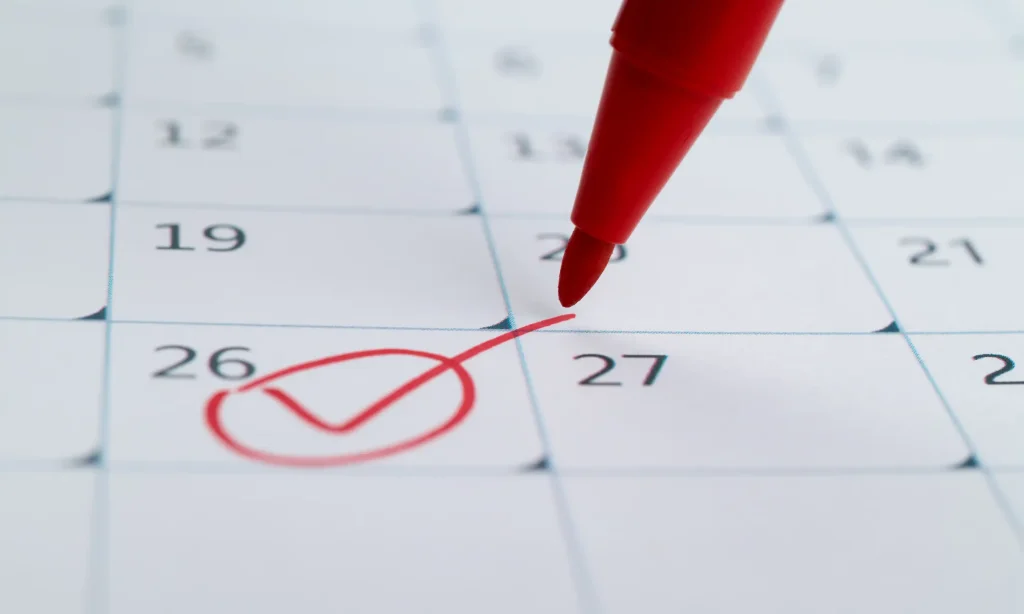
-
Start Making Up for Missed Fasts (Qada’)
If you have any missed fasts from previous years, Qada’ (make-up fasts) is a great way to prepare for Ramadan.
Fasting in the month of Sha’ban will help you adjust to the physical demands of Ramadan and make up for any obligatory fasts you may have missed. It also serves as an excellent strategy in Ramadan preparation for the upcoming month of fasting.
It was narrated that Sayyidatina Aishah (radiallahu anha) said:
“The Messenger of Allah did not fast in any month of the year more than he did in Shaban. He used to fast all of Shaban.” [Sunan An-Nasa’i]

-
Adopt Healthy Eating and Exercise Now
Ramadan prep also means meal prep! Establish healthy eating habits and a light exercise routine to build your physical stamina for Ramadan.
Eating balanced meals, drinking plenty of water, and staying active will ensure you are in optimal health for fasting.
Preparing your body now will help you maintain energy levels during the long fasting hours and allow for better overall health during Ramadan.

-
Create a Comprehensive Timetable
A well-structured timetable is essential for organizing your time effectively during Ramadan, allowing you to balance your spiritual, personal, and professional commitments.
To ready for Ramadan, start by aligning your daily schedule with the five obligatory prayer times, making them the anchors of your day. Dedicate specific slots for Qur’an recitation and reflection, ensuring you allocate time for meaningful connection with the words of Allah.
Incorporate your work or study obligations into your schedule, along with meal preparation and Suhoor and Iftar. Be mindful to include adequate time for rest and sleep to maintain your energy levels throughout the month.
A clear and intentional timetable helps you stay focused, productive, and consistent, enabling you to maximize your time for worship and spiritual growth while maintaining balance in other areas of life. By planning ahead, you can make the most of this blessed month and fulfill your goals with a sense of purpose and dedication.

-
Plan Your Zakat and Other Charitable Activities Beforehand
Ramadan is a month of generosity, compassion, and giving, making it an ideal time to fulfill your obligations of Zakat and engage in additional voluntary acts of kindness.
Charity holds immense significance during this sacred month, as it not only purifies wealth but also brings immense rewards and strengthens the bonds of community.
Abu Dharr narrated that the Messenger of Allah (ﷺ) said:
“Your smiling in the face of your brother is charity, commanding good and forbidding evil is charity, your giving directions to a man lost in the land is charity for you. Your seeing for a man with bad sight is a charity for you, your removal of a rock, a thorn or a bone from the road is charity for you. Your pouring what remains from your bucket into the bucket of your brother is charity for you.” [Jami’ At-Tirmidhi]
To prepare for Ramadan, start planning ahead by calculating your Zakat. Ensure you understand the rules and thresholds (nisab) to determine the amount you owe accurately. Use this opportunity to reflect on the blessings you have and the impact your contributions can make on those in need.
Additionally, consider identifying trustworthy charitable organizations, local causes, or individuals in your community who could benefit from your support.
By preparing in advance, you can ensure your charitable efforts during Ramadan are intentional, impactful, and aligned with the spirit of this blessed month.
-
Dedicate Time to Studying and Understanding the Deeper Meanings of Ramadan
One of the best ways Ramadan preparation tips is by exploring its deeper meanings and spiritual significance. Understanding core principles like patience, self-control, and gratitude can transform the month into a truly meaningful experience.
Take time to reflect on the core principles of Ramadan, such as patience, self-control, gratitude, and compassion. These values are at the heart of this blessed month and serve as a guide to becoming a better version of yourself.
By truly understanding and internalizing these principles, you can make Ramadan a time of growth and transformation, rather than mere ritual.
To deepen your knowledge, dedicate time to reading books that explore the significance of Ramadan, its history, and its impact on personal and communal life.
Attend lectures, webinars, or Islamic study circles that shed light on the spiritual dimensions of fasting and the broader lessons Ramadan teaches.
This conscious effort to learn and reflect will not only help you appreciate the blessings of Ramadan but also inspire you to approach the month with a renewed sense of purpose, enriching your acts of worship and daily practices.
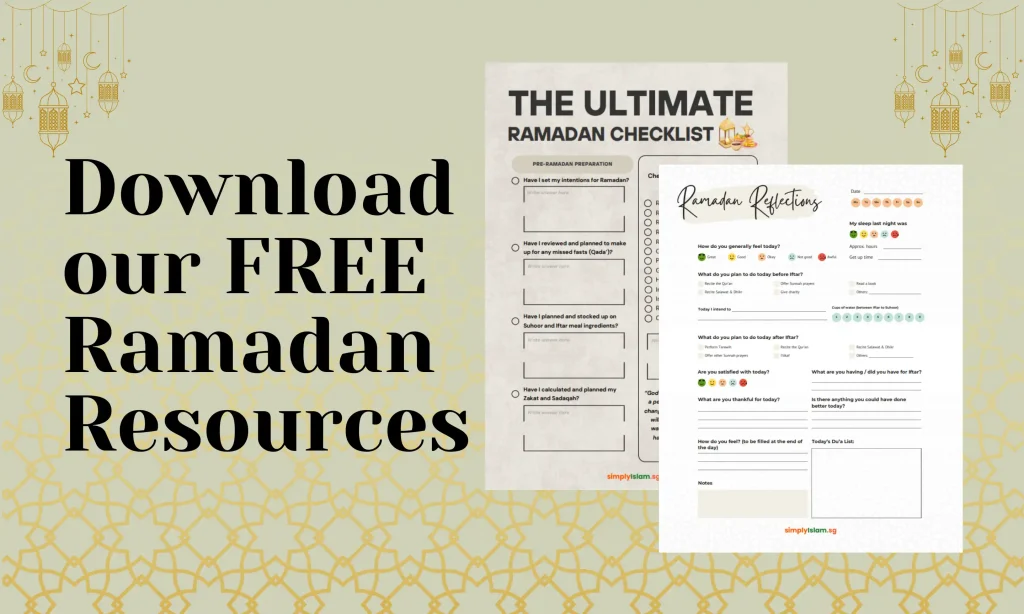
-
Make a Checklist for Ramadan So You Don’t Miss Out
What’s Ramadan preparation without a checklist? A well-thought-out checklist is an invaluable tool to help you stay organized and ensure that you don’t overlook any important tasks or acts of worship during this sacred month.
From planning your Zakat to setting goals for Qur’an recitation, prayer, and charity, a checklist keeps you focused and allows you to approach Ramadan with clarity and purpose.
To help you stay on track, download our comprehensive Ramadan checklist below to ensure you are fully prepared for the holy month. If you’re looking to track your progress throughout Ramadan, check out our Ramadan Reflections template!
Complete your Ramadan preparation with SimplyIslam
To empower your Ramadan preparation journey, SimplyIslam is excited to offer an upcoming Ramadan course in Singapore designed to help you deepen your understanding of your rights and obligations, as well as the fundamentals of fasting.
Additionally, we are launching the Ramadan Charity Basket initiative to support needy families in Singapore. This initiative presents an opportunity for you to contribute both financially and through volunteer efforts, allowing you to make a meaningful difference in the lives of those in need during this blessed month.
As we approach the blessed month, Ramadan preparation is key to making the most of this sacred time. From spiritual reflection and setting intentions to practical steps like meal planning, fasting preparation, and charity contributions, there’s much to do to ensure that we enter Ramadan with the right mindset and the tools for success.



